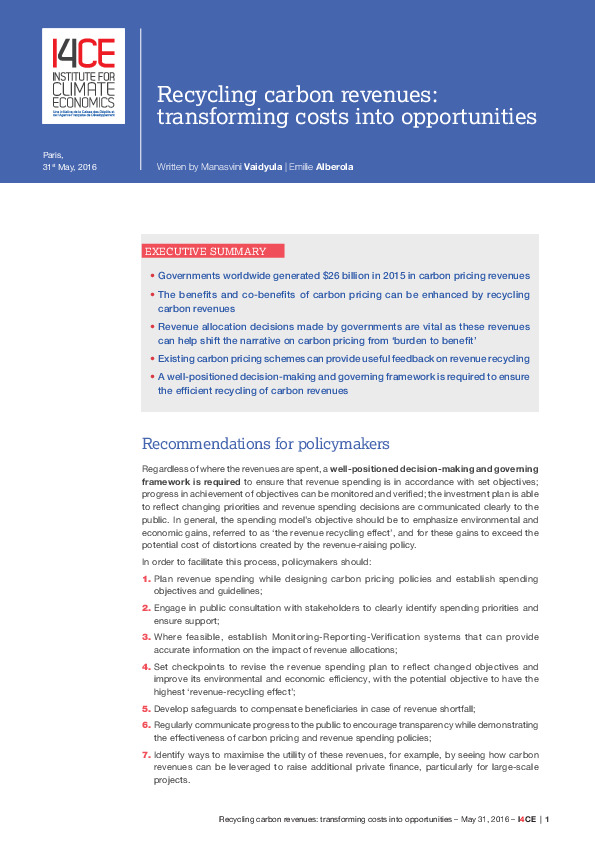Recycling carbon revenues: transforming costs into opportunities
The World Bank estimates that in 2015 alone, $26 billion in government revenue has been generated through carbon pricing initiatives. These revenues can be used for many purposes – including achieving climate ambitions – that could yield economic and environmental gains. This potential gain is referred to as the ‘revenue recycling effect’.
Revenue allocation decisions made by governments are vital as these revenues can help shift the narrative on carbon pricing from ‘burden to benefit’. Regardless of where the revenues are spent, a well-positioned decision-making and governing framework is required to ensure that revenue spending is in accordance with set objectives; progress in achievement of objectives can be monitored and verified; the investment plan is able to reflect changing priorities and revenue spending decisions are communicated clearly to the public.
The paper briefly examines this subject while providing examples of carbon revenue usage by certain governments and offering some recommendations to policymakers.
